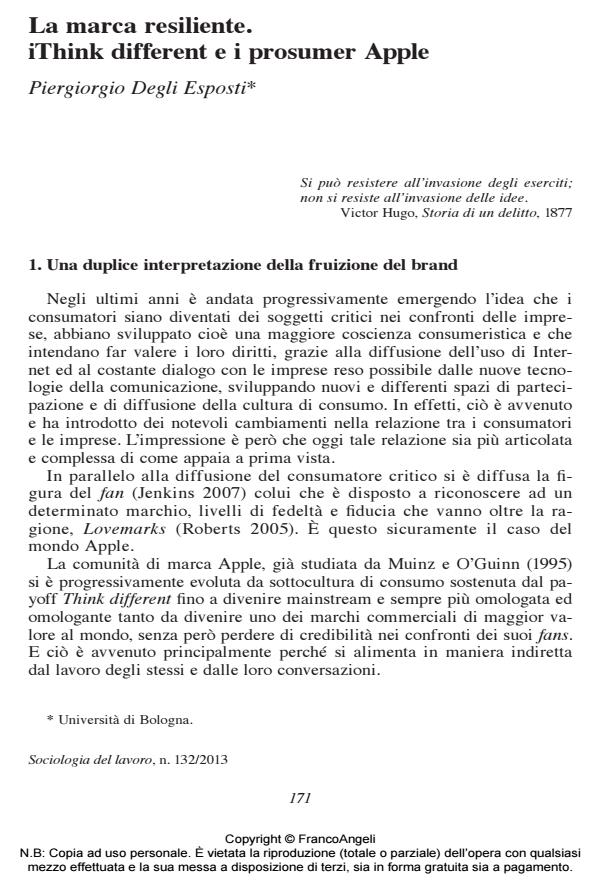The resilient brand. iThink different and the Apple’s prosumers
Journal title SOCIOLOGIA DEL LAVORO
Author/s Giorgio Degli Esposti
Publishing Year 2013 Issue 2013/132
Language Italian Pages 10 P. 171-180 File size 244 KB
DOI 10.3280/SL2013-132013
DOI is like a bar code for intellectual property: to have more infomation
click here
Below, you can see the article first page
If you want to buy this article in PDF format, you can do it, following the instructions to buy download credits

FrancoAngeli is member of Publishers International Linking Association, Inc (PILA), a not-for-profit association which run the CrossRef service enabling links to and from online scholarly content.
The paper, starting from the distinction between critical consumer and fan, aims at analizing the prosumer role within the Apple’s brand community. The author argues that the brand itself has high resilient capacity, enabling its audience to identify with their products and values, thus creating a "utopian futurism" which can also be read as a form of "false consciousness" that leads the prosumers in a contradicton, on one hand enhancing their power, on the other hand turning them into victims of its logics. To verify the theoretical hypotheses the author uses an empirical approach lead upon the Apple brand storytelling, from its beginning, the construction of the "Think different" allegory.
Keywords: Resilience, prosumer, brand community, McDonaldizzation, utopian futurism, storytelling, mass consumption
Giorgio Degli Esposti, La marca resiliente. iThink different e i prosumer Apple in "SOCIOLOGIA DEL LAVORO " 132/2013, pp 171-180, DOI: 10.3280/SL2013-132013